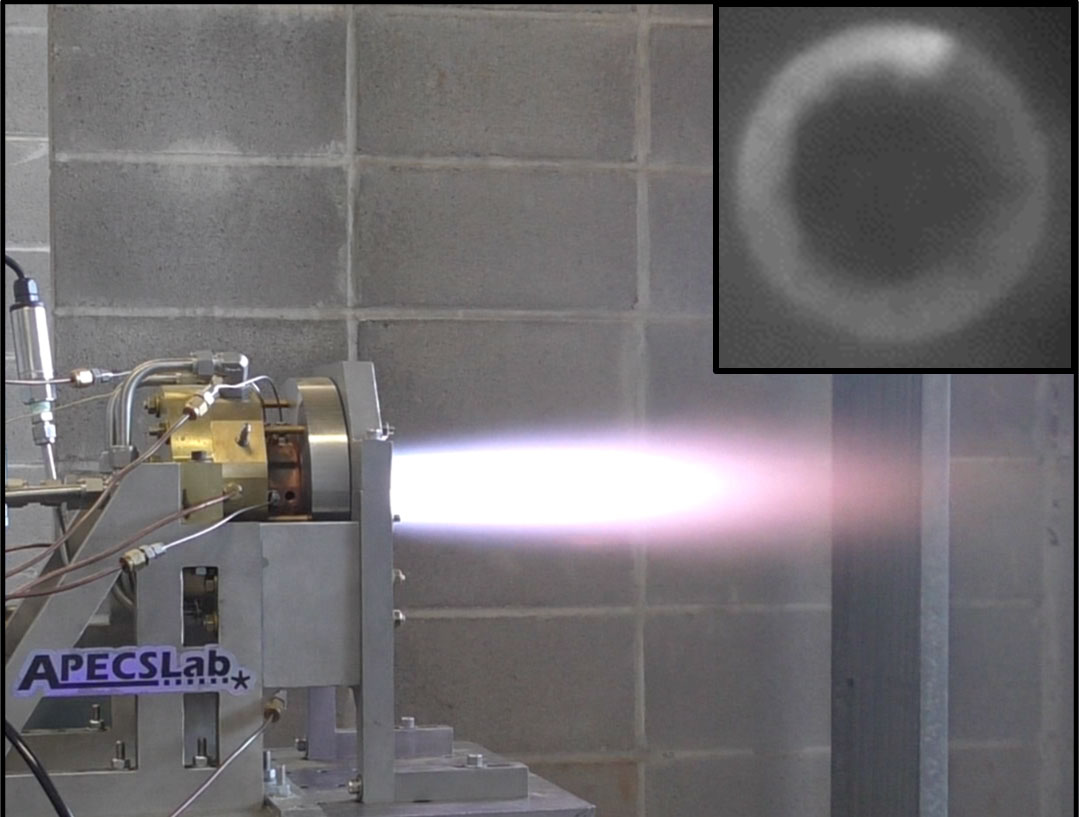HyTASP Webinar Series: Detonation-Based Combustion for High-Speed Propulsion Systems (AIAA Member Exclusive) 18 October 2024 12:00 pm - 18 October 2024 1:00 pm & Online
On Demand Recording Available

AIAA Members: make sure you are signed in to the site with your member credentials to be able to access the replay.
This event is offered exclusively to AIAA members. Want to learn more about the benefits of AIAA membership?
Detonation-Based Combustion for High-Speed Propulsion Systems
Detonation-based engines have recently gained substantial interest as an alternative to traditional deflagration-based propulsion systems, with the theoretical potential to achieve overall engine performance gains in a more compact volume. Specifically, rotating detonation rocket engines (RDRE’s) can exhibit an increase in chamber pressure, temperature and exhaust gas velocity for a substantially lower injection pressure through a near constant-volume combustion process, compared to constant-pressure devices. If these benefits are successfully realized, this can result in overall engine performance gains (i.e., increased thrust and specific impulse) up to ~10% or a 5X reduction in required injection feed pressures.
During RDRE operation, one or more detonation wave(s) travel around the annulus supersonically by continuously consuming the incoming reactants while producing combustion products that exit the open end of the engine. Experimental work performed at the University of Alabama in Huntsville (UAH) in collaboration with the Air Force Research Laboratory (AFRL) is focused on characterizing engine behavior of a small-scale RDRE for versatile in-space propulsion
Specifically, this work aims to measure engine performance (i.e., thrust and specific impulse), determine the operability range for various flow conditions, and characterize the corresponding operating detonation modes for a 100 N, 25 mm outer diameter detonation-based thruster. Current emphasis is placed on investigating various chamber geometries including both annular and cylindrical configurations, as well as different fuels (i.e., methane, hydrogen); this aims to demonstrate engine behavior sensitives towards the development of engine scaling approaches for determination of the minimum engine size supporting robust detonation. Additionally, to greater understand how to create and sustain high-strength detonations in compact RDREs, fundamental studies into characteristic timescales and coupling mechanisms for detonation-based engine processes including chemical kinetics, injection, flow and acoustic are required. Using various first principle analyses, these timescales are quantified for a variety of fuels, along with different non-idealities being present (e.g., pre-burning). In total, results from these studies advance the understanding of RDREs for future designs that may lead to performance gains above those achievable from traditional designs.
Speaker

University of Alabama in Huntsville
Dr. John Bennewitz is an assistant professor in the Mechanical & Aerospace Engineering Department at the University of Alabama in Huntsville. He is the principal investigator of the Advanced Propulsion, Energy and Combustion Science Laboratory (APECSLab), managing a group of students to pursue research into advanced propulsion systems for liquid and solid propellants and power generation. Prior to joining UAH, he was the principal investigator for the rotating detonation rocket engine (RDRE) program at the Air Force Research Laboratory (AFRL). During his five years at AFRL, he performed over 2000 successful hot-fire tests of developmental RDRE hardware that demonstrated robust detonation and operability for a wide range of injection designs. He received his B.S. in Mechanical Engineering from the University of Pittsburgh in 2008, before completing his M.S. in Aerospace Engineering from Georgia Institute of Technology in 2010 and his Ph.D. in Mechanical Engineering from the University of Alabama in Huntsville in 2015. Upon graduation, he worked as a postdoctoral research scholar at UCLA’s Energy and Propulsion Research Laboratory studying acoustically-coupled fuel droplet combustion. His present research focuses on investigating fundamental detonation physics and engine scaling mythologies of small-scale detonation-based engines for in-space applications.
